No need for a long introduction here. These eight books are quick reads filled with wisdom attributed to all sorts of people ranging from ancient Greek slaves to 21st century business masterminds.
On The Shortness of Life by Seneca (105 pages)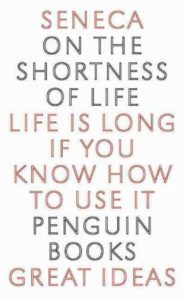
I’ve never read a book so old that’s as applicable to 2017 as this one. A practitioner of Stoicism, Seneca’s insights on wealth, jealously, power, and happiness are as useful today as they were when he was advising his students (including Nero) in Ancient Greece during the first century AD: “Envy you’ll escape if you haven’t imposed yourself on other people’s notice, if you haven’t flaunted your possessions, if you’ve learned to keep your satisfaction to yourself.” Don’t expect a college textbook when you read this. Seneca differs from other “philosophers” in that he’s practical – he doesn’t ask esoteric questions that have no answers. He’s easy to understand and you’ll have a collection of great quotes by the time you finish.
Turning Pro by Steven Pressfield (146 pages)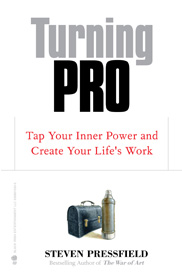
I’m a big fan of Pressfield’s best-known book, The War of Art, and this follow-up is equally down-to-earth and provocative. He relentlessly confronts our ever-present fear of abandoning the “amateur” life and outlines what it takes to shed comfort in order to live as a professional in the craft we pursue. It’s pages are packed with the kind of old fashioned wisdom that gives you the kick in the ass you need every once in awhile.
The Dip by Seth Godin (96 pages)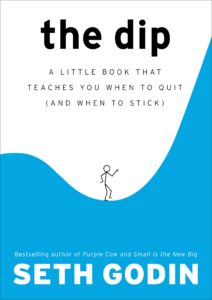
Although The Dip is Seth Godin’s shortest book by far, the lesson it provides is his most valuable in my opinion. Every idea for a business, product, book, app, or whatever sounds like a blast at first. But what happens when we face the inevitable barriers and setbacks? Seth calls this “the dip,” and asserts that true winners know when to ride out the dip and when to call it quits. The Dip explains how to make that decision. Although he’s a pioneer of modern-day business and marketing, Seth’s insights on goals and strategic quitting are applicable to just about any aspect of life.
Meditations by Marcus Aurelius (112 pages)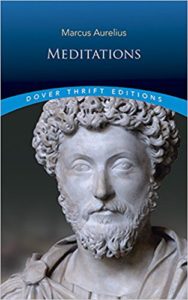
“The best revenge is to be unlike him who performed the injury;” “If you are distressed by anything external, the pain is not due to the thing itself, but to your estimate of it, and this you have the power to revoke at any moment.” These are just two reflections from the 2000+ year old journal-turned-book of the Roman Emperor Marcus Aurelius (yeah, the guy from Gladiator) which documents his quest for inner peace and virtue during times of war and turmoil. The people he governed literally worshipped him as a god; he could have anything he desired. But the insights in his book reflect his emotional sobriety and mental clarity. If the most powerful man in the world could tame his ego, so can you. If you spend one dollar on a book, make it this one.
The Way to Love by Anthony de Mello (196 mini pages)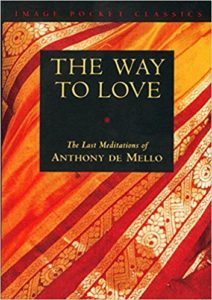
When I first got this tiny book, I thought I’d finish it in a couple of hours. But two years after I first read it, I’m nowhere close to absorbing all the insights and guidance that it offers. The late Anthony de Mello was a Jesuit priest, but his writing cuts across cultures: it’s is clear, practical, and calming, and packed with timeless lessons about all facets of life. I could read the book a thousand times and feel like I was reading something new each time. De Mello insists that he nor any other anyone else has the power to “change your life” – only we can do that for ourselves. But he concedes that we do need clues and hints to get on the right path, and I think this book is a great first step for anyone, no matter where we are in life.
The Prince by Machiavelli (80 pages)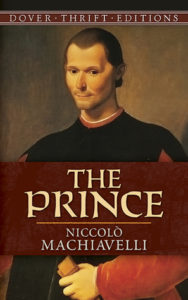
This is one of the most controversial books of all time, which is why many history classes reference it, but also why so many people misunderstand it. It’s easy to play off Machiavelli as a cold hearted politician obsessed with gaining power, but this ignores the fact that the residue of his writings is still visible in today’s politics. The Prince is a stark reflection of what works in the realm of power and what doesn’t. Nobody said you had to agree with him, but the price of ignoring history is remaining clueless about the present.
The Moral Sayings of Publilius Syrus: A Roman Slave (92 pages)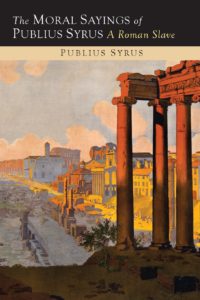
The best philosophy often comes from people who never labeled themselves “philosophers.” That is, they don’t study it in an academic light – they live it and practice its virtues. As a slave in ancient Rome, Syrus developed this handbook of practical wisdom that sharpened his mind and enabled him to live a full life in spite of his horrendous circumstances. The book is comprised entirely of independent quotes, (doesn’t matter where you pick up or leave off) and is just as practical today as it was over 2,000 years ago. Some of my favorite sayings include: “When the tree has fallen, anyone can cut wood” and “Better to be ignorant of a matter than half know it.”
Why Don’t We Learn from History? by B.H. Liddell Hart (126 pages)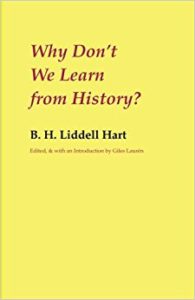
“Fools learn from experience,” said Otto von Bismarck. “I prefer to learn from the experience of others.” B.H. Liddell Hart references this quote in the opening pages of this book after posing the question: What the purpose of studying history? He notes that while we we flail aimlessly trying to solve today’s complex issues, the truth often lies in the study of the past. But even if history can’t tell us precisely how to act in a given situation, it can serve tell us what to avoid, which is perhaps more important. Written by perhaps the most respected historian of the 20th century, this book is a call to drop our prejudices of what the past was so we can see the truth clearly when it matters the most: now.
All of these books were included in my previous monthly newsletters – If you’d like to sign up to receive more recommendations, you can sign up here.